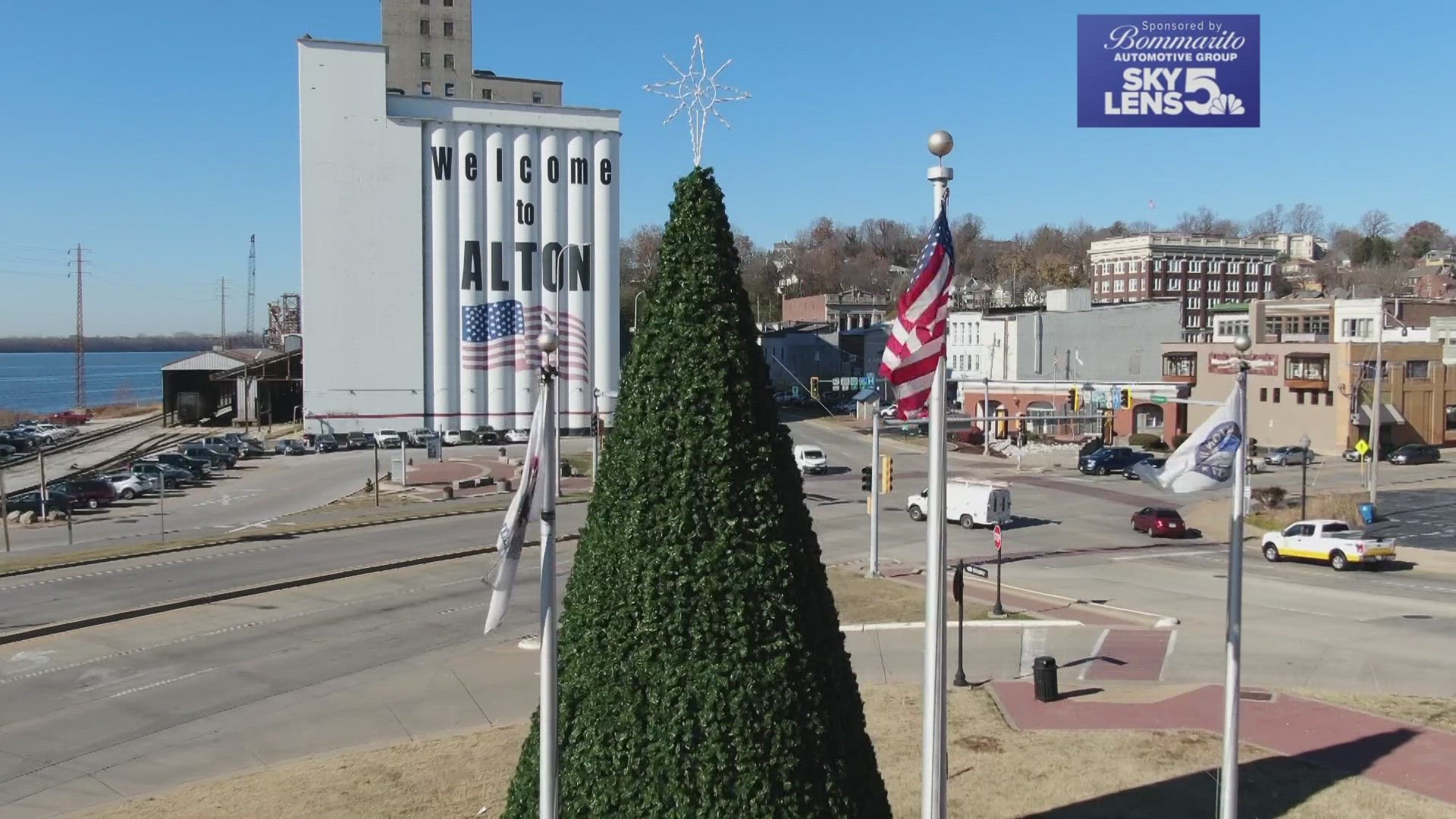ALTON, Ill. — The Mighty Mississippi may rush by Alton, but time seems to stand still in the city.
Its most well-known attractions are standouts in its history: remnants as one of the nation's most bustling river city ports, the site of Abraham Lincoln's near-duel and its self-designation as the "most haunted" town in the United States.
But, the city hasn't seen large economic or population growth in decades. Alton had its highest number of residents at around 43,000 in 1960. The city's population has been on the decline ever since, currently standing at around 25,000 according to the last census. The city's poverty unemployment rates are also worse off compared to the Illinois average.
Alton's in-depth history, however, could be what paves the city's way to a brighter future.
AltonWorks, a company focused on the "revitalization of Historic Downtown Alton," recently unveiled its plans to transform the city's riverfront into the nation's next national park, located just 25 miles from Gateway Arch National Park.
The designation could bring much-needed foot traffic and new business to Alton, but it will take time before the city will know whether it's a possibility or not.
"The National Park Service does what they call a reconnaissance study and it takes about two years," AltonWorks Senior Executive Kiku Obata told 5 On Your Side. "They just make sure everything is in place so that they could make that happen."
The study is part of the National Park Service's "clearly defined process" for screening potential new parks to its system. New parks must broadly meet certain requirements to even be eligible for consideration, including:
- Possess nationally significant natural, cultural, or recreational resources
- Be a suitable and feasible addition to the National Park System
- Require direct NPS management instead of protection by some other government agency or by the private sector
Because AltonWorks' main focus of the potential park is the riverfront, the organization will have to successfully pitch that the riverfront is an outstanding enough natural and cultural area to qualify for national park recognition.
The Mississippi River may fall into NPS's definition of a standout "natural area", but its 2,340-mile length is hardly specific to Alton. Apart from Gateway Arch National Park, there are no other national parks along the river.
The Arch achieved park designation in 2018 specifically because of St. Louis' role in the nation's westward expansion, rather than because of its place along the Mighty Mississippi. Poverty Point National Monument in Louisiana also sits along the river, but obtained its designation because of the ancient earth mounds at the location built by Native Americans.
St. Louis' successful argument of being an important "cultural area," rather than a standout "natural area," may be the example Alton chooses to follow, especially given Alton's successful track record of capitalizing on its interesting history.
Prime cultural areas for national park consideration, according to NPS, include:
- A resource that is associated with events that have made a significant contribution to United States history
- A resource that is importantly associated with the lives of people nationally significant to United States history
- A resource that embodies distinguishing characteristics of an architectural period, style or method of construction
- A resource that has yielded or may be likely to yield information of major scientific importance by revealing new cultures
Importantly, the service makes clear that recreational opportunity alone isn't enough to warrant national park designation.
"The potential for public use and enjoyment is an important consideration in evaluating potential new additions to the National Park System. However, recreational values are not evaluated independently from the natural and cultural resources that provide the settings for recreational activities," NPS said.
Even then, NPS would not have the final say in whether the city achieves its national park. The last word would have to come through an act of Congress after multiple congressional committee hearings.
There are, however, multiple other alternatives to join the National Park System if national park status isn't achieved. Alton's riverfront could potentially become a national monument, national historic site, national historical park or a national recreation area.
Time will ultimately tell whether Alton will remain a city stuck in time, or flow like the mighty river it has depended on.
Top St. Louis headlines
Get the latest news and details throughout the St. Louis area from 5 On Your Side broadcasts here.

